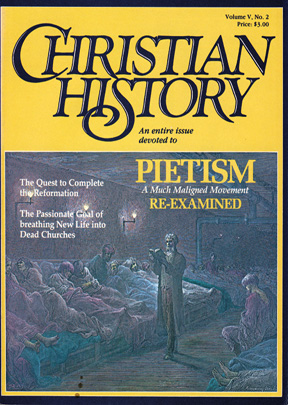Issue 10 Pietism: A Much-Maligned Movement Re-Examined
What's inside
From the Publisher: A Much Maligned Movement Re-Examined
Overview of this issue on Pietism.
the EditorsOverwhelmed as with a Stream of Joy: An Autobiography
Autobiographical extracts from a Pietist who led the way in social action.
Auguste Hermann FranckeCan These Bones Live?
A spiritual hunger grew in reaction to the coldness and formalism of the Protestant state churches. Drawing from diverse roots, Pietism emerged as a quest to apply Reformation doctrine to personal life.
F. Ernest Stoeffler. Ph.D.Pietism Gallery — Thumbnail Sketches of Important Leaders in the Pietist Movement
Who was who in the Pietist movement.
the EditorsReborn in Order to Renew
The Pietists’ emphasis on the new birth and biblical authority had startling implications as to how one treated orphans, the lower classes and one’s opponents. Orthodoxy was not enough. A changed life was required.
John Weborg, Ph.D.Christian History Chart: The Roots and Branches of Pietism
Experiencing the Christian Faith
the EditorsMoving on Many Fronts
Preaching, social concern, missions, ecumenicity were among the major emphases of Pietism.
Gary R. SattlerThe Flowering of Pietism in the Garden of America
Pietism provided the foundations for much of American religious structure.
Donald F. DurnbaughThe Wissahickon Hermits
These musical Pietists migrated to America where they did works of mercy, teaching, attending the sick, and evangelizing.
Robert BornemanFrom the Archives: True Christianity
Johann Arndt’s work is recognized as the first great literary expression of Pietism. In his True Christianity he lays the foundation for biblical faith and how the believer must experience the power of faith in a vivid Christian lifestyle.
Johann ArndtFrom the Archives: On Christian Perfection
To offset the decline in moral and spiritual values, Pietists sought to establish new standards of conduct and Christian discipline. Often these standards appeared to be perfectionistic and Pietists were criticized for this tendency. However, as this selection from A.H. Francke shows, Pietists also recognized human imperfections and thus strove for their ideals, fully aware that frailty and ignorance are a part of man’s struggle.
August Hermann FranckeFrom the Archives: Examining the Candidate
One of the immediate concerns of Henry M. Muhlenburg when he arrived in Pennsylvania in 1742 was the improvement of the quality of the clergy in the colonial Lutheran churches. To aid this process, Muhlenburg created a series of questions to examine candidates for the ordained ministry. While the author is concerned with loyalty to the historic Lutheran position, evidences are apparent of his “reverend fathers in Halle.”
Henry M. MuhlenburgFrom the Archives: Pietism and its Formidable Critics
Pietism has had its severe critics right from its beginnings and continuously through its history.
the EditorsBack issues
Issue 158
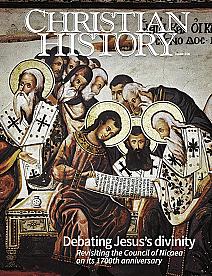
Debating Jesus's divinity
Issue 157
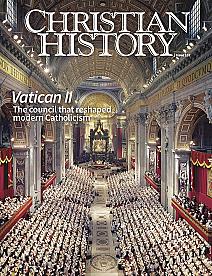
Vatican II
Issue 156+
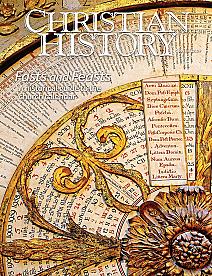
Fasts and Feasts
Issue 156
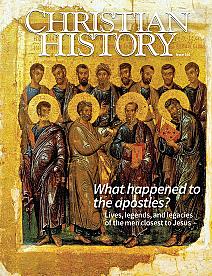
What Happened to the Apostles?
